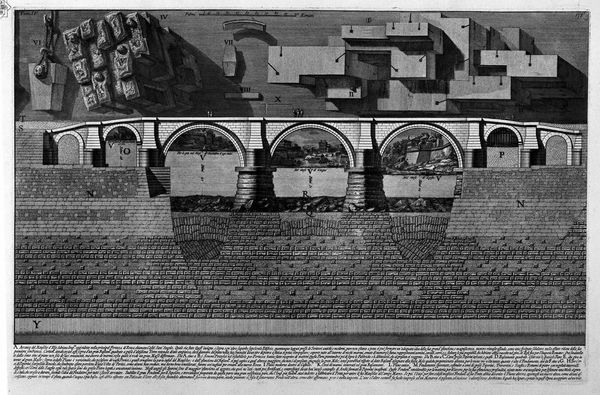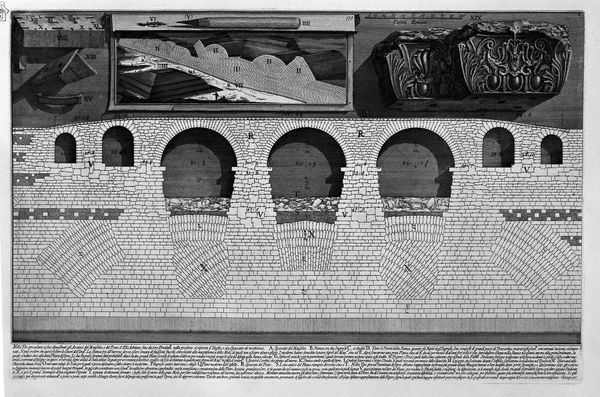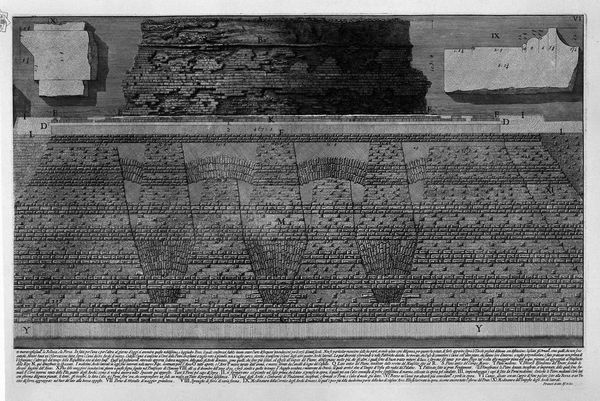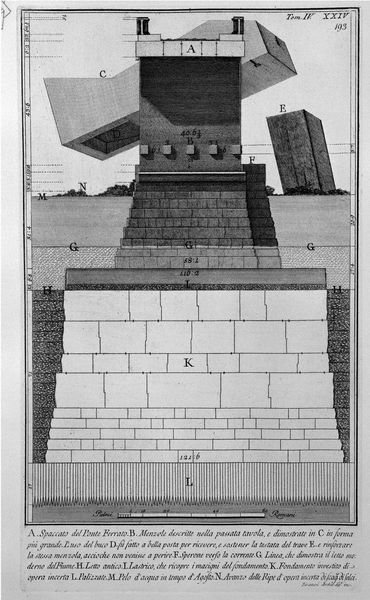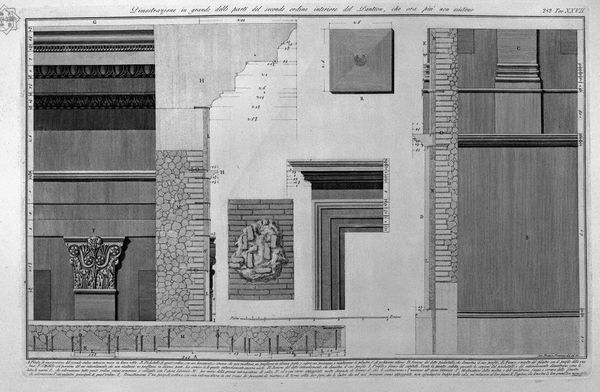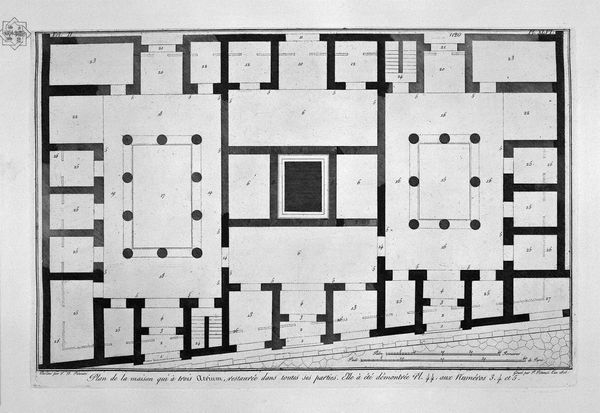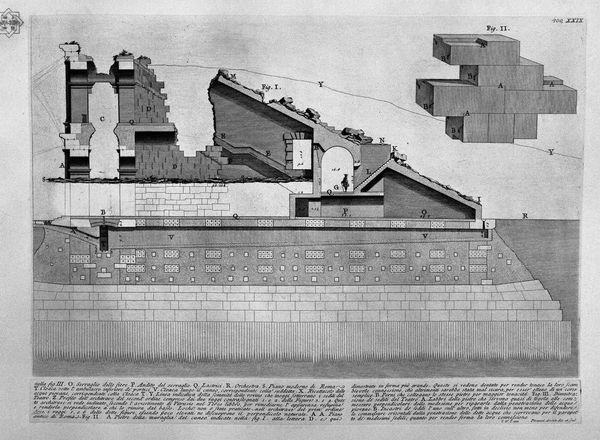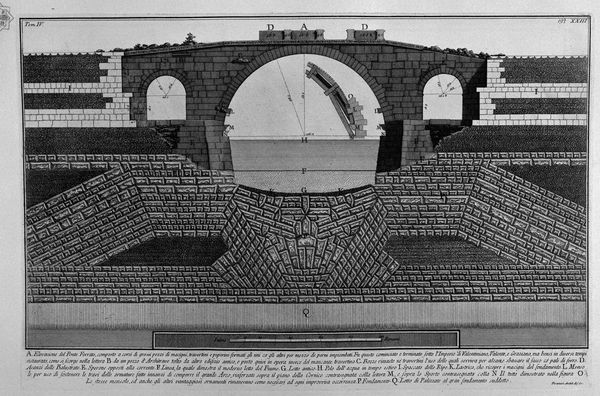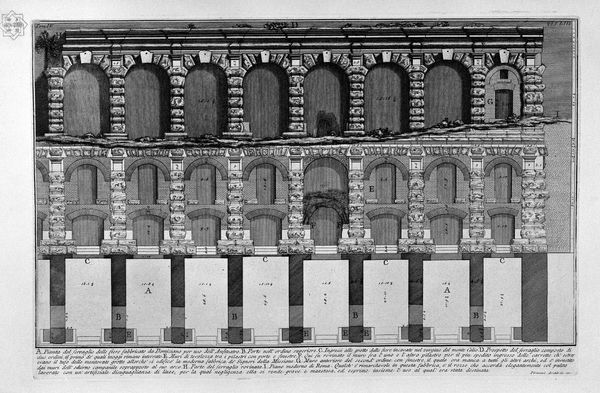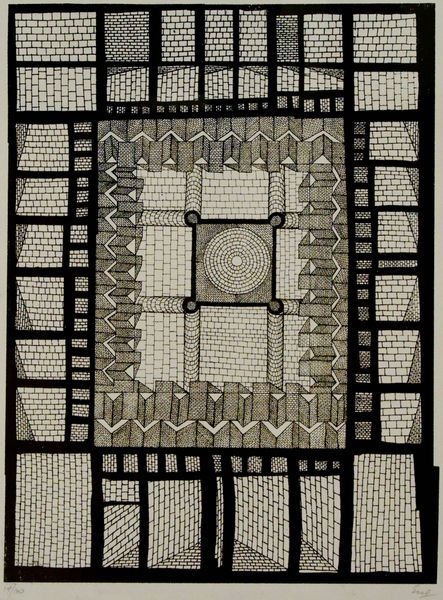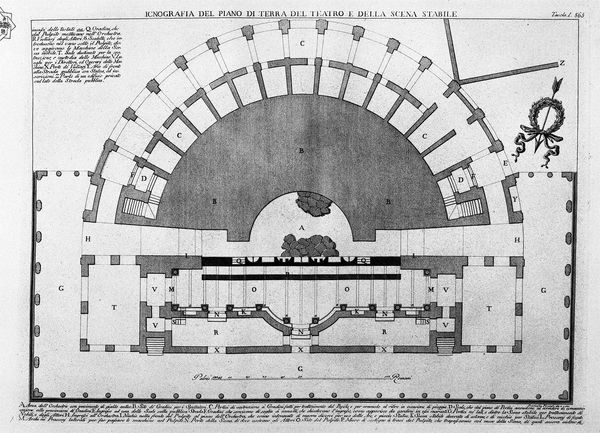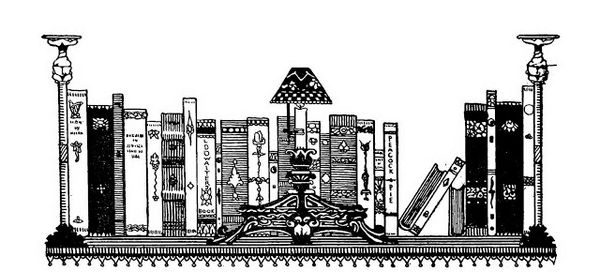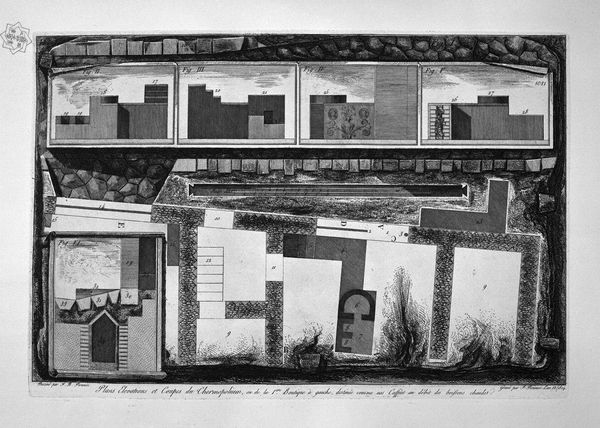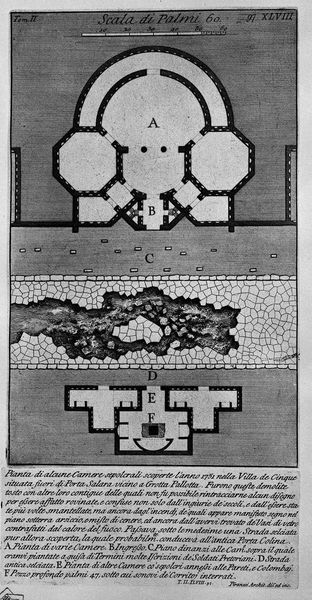
The Roman antiquities, t. 4, Plate VIII. Cutaway view of the Mausoleum of Hadrian and the Elio Bridge St. Angel.
0:00
0:00
print, etching, engraving, architecture
#
architectural landscape
# print
#
etching
#
romanesque
#
geometric
#
framed image
#
ancient-mediterranean
#
black and white
#
line
#
cityscape
#
engraving
#
architecture
Copyright: Public domain
This cutaway view of the Mausoleum of Hadrian and the Elio Bridge St. Angel, was created by Giovanni Battista Piranesi in the 18th century. The Mausoleum, originally built as Emperor Hadrian's tomb, is a fascinating study in cultural appropriation. Note its circular form, evolving from ancient tumuli and later adopted in Christian architecture for baptisteries and mausoleums, symbolizing a cyclical passage through life and death. The bridge, with its arches, is a testament to Roman engineering prowess. Arches aren't just structural elements; they represent connections, gateways to new realms, both physical and spiritual. Consider how the Mausoleum's transformation into a fortress mirrors humanity's tendency to repurpose sacred spaces for secular power. This architectural palimpsest reveals a history of successive layers of meaning, reflecting our complex relationship with the past and our perpetual quest for immortality.
Comments
No comments
Be the first to comment and join the conversation on the ultimate creative platform.
